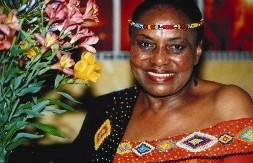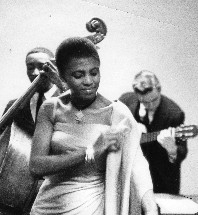The basic policy of apartheid began in 1652 because the whites settled in South Africa and said that they were in control. It was declared by the name apartheid in 1930. In the 1940s the national party began, but it did not become official until 1948 because that is when the Afrikaner Nationalists made laws.
In the Population Act of 1950 they separated the people into three groups: the Bantu (black people), whites, and the coloreds (mixed race). Later they added a fourth group; the Asians (Indians and Pakistanis). They did not let them live in the same house or even in the same neighborhood. They gave all good products to those who had the most money, which was naturally the whites, and the leftovers or things they did not want were given to the blacks. The blacks did not have as much money, and they were lucky to get a job or to eat every other day. The blacks were allowed to work for the whites, but they could not live with them or stay with them.
In 1951 the whites said that blacks can live here in this place that they didn’t want but blacks couldn’t vote; they were allowed to pick their leader in the tribe and were given places to work. The whites said that it was a step up to what they had when really it was a step down.
 |
Through all the years apartheid was in control, there were a handful of people who devoted their lives to change the ways the blacks were treated. One of those people was a woman named Miriam Makeba.
 |
Miriam Makeba was born in 1932 during a time when “non whites” were denied equal rights. Makeba’s father was a school teacher and a member of the Xhosa tribe; he had to choose between living in a rural tribe reservation or a township near a city. He picked Prospect Township where Makeba was born. Though a township, there was still no electricity or running water. Makeba's mother was a domestic worker at a white home in Johannesburg, which was adjacent to Prospect. Her mother illegally sold home-brewed beer and had to spend six months in jail when Makeba was 18 days old; she went with her.
Makeba attended a Methodist school for African children named Kilnerton Training Institute. She participated in the school choir which led to her first solo performance, at age thirteen, in front of King George VI of England when he visited South Africa.
She spent eight years at Kilnerton and then followed her mother in serving at white homes. Makeba married at seventeen, soon after giving birth to a daughter named Bongi. Her husband died two years later leaving her to support her child alone. She continued domestic work as well as singing at weddings and funerals in her spare time. Her singing got her into a professional group of eleven men called the Black Manhattan Brothers in 1954. Two years later, she recorded her signature song “Pata Pata” which became a hit in America. She stayed with the group until 1957. A year later, she started an all female band called the Skylarks. She became more famous with her music by touring for 18 months. She also did acting and sang in Come Back, Africa in 1958, a documentary on the life of black citizens who lived in South Africa under apartheid, and King Kong in 1959.
Before her movies, in 1957, Makeba was married to Sonny Pillay, whom she divorced two years later. She went to Venice for a Film Festival, where she met Steve Allen who was focused on bringing Makeba to the U.S. She first went to London, and met Harry Belafonte who became her sponsor and mentor. She then traveled to America. While there she collaborated with Harry Belafonte and released the album “An Evening With Belafonta/Makeba” which addressed the hardships people underwent in the time of apartheid. The album even won a Grammy (along with many other of her albums) for the “best folk recording” in the 1960s. Her opposition to apartheid resulted in the revoking of her South African citizenship. Although Makeba didn’t directly oppose and fight against apartheid, the known fact of her disagreement with it made people question whether it was truly necessary. She was named “Mama Africa” for fighting for equality.
In 1991 Makeba returned to Johannesburg, South Africa. Just four years later she started her own organization to help keep females from her homeland safe.
Throughout Makeba’s career, she was an active fighter in the battle against apartheid. She used her musical talent and the fame she received from it to denounce and further increase awareness of apartheid and its cruelties. Miriam Makeba died November 11, 2008, at the age of 78, from a heart attack.
Miriam Makeba with Bill Slater in 1965. afrol news. Web. 17 Feb. 2010. <http://www.afrol.com/articles/15051>.
"Miriam Makeba." Answer.com. N.p., N.p. Web. 17 Feb. 2010. <http://www.answers.com/topic/miriam-makeba>.
"Apartheid, social and political policy of racial segregation and discrimination enforced by white minority governments in South Africa from 1948 to 1994." Web. 17 Feb. 2010. <http://www
Page created on 8/28/2011 12:00:00 AM
Last edited 1/6/2017 10:21:18 PM
